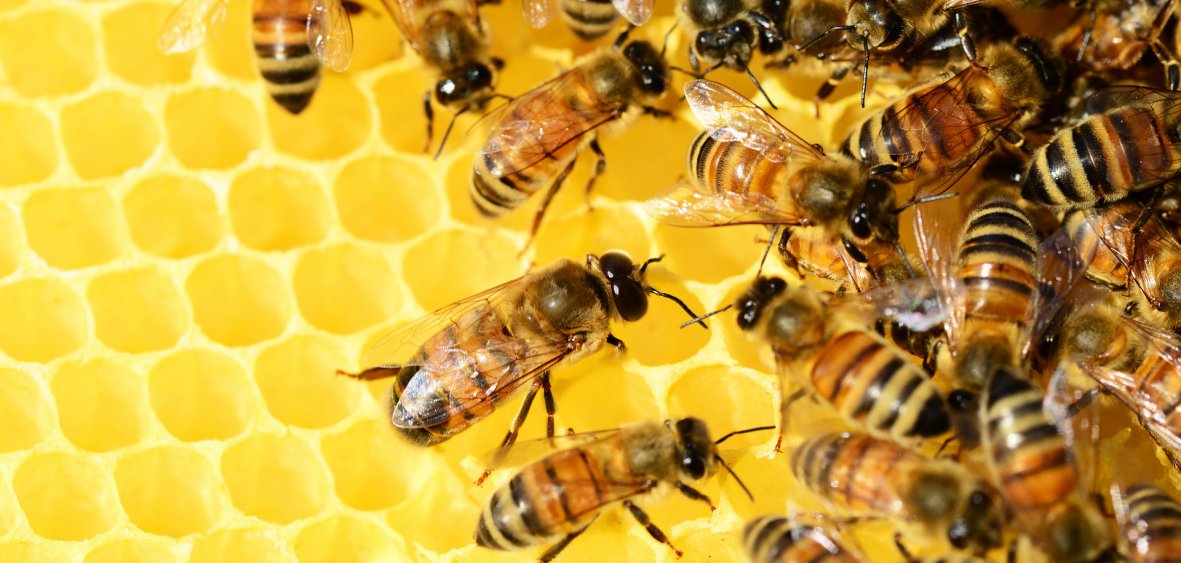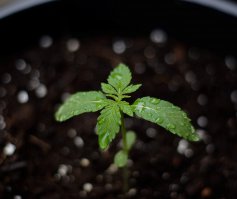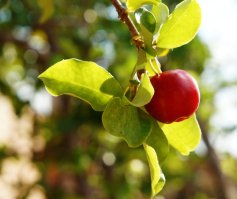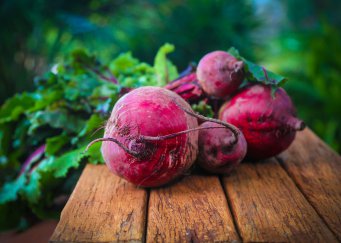 It has been known for a long time that bee products have a very good effect on our health. Bees are extremely useful creatures - not only do they play an important role in our ecosystem, but they also produce a multitude of products that can serve us for health purposes. The most popular bee product is, of course, honey, but it is worth knowing that these insects offer us many more things that it is good to incorporate into your daily diet. One of the best examples is bee pollen.
It has been known for a long time that bee products have a very good effect on our health. Bees are extremely useful creatures - not only do they play an important role in our ecosystem, but they also produce a multitude of products that can serve us for health purposes. The most popular bee product is, of course, honey, but it is worth knowing that these insects offer us many more things that it is good to incorporate into your daily diet. One of the best examples is bee pollen.
Remaining a bit in the shadow of traditional honey, it also hides in itself a lot of valuable properties for our body. It is worth to learn as much as possible about it, because by including it into our daily menu we will be able to do something really good for our body. Bees pollen is a male reproductive cell produced by flowers. As the name suggests, one of its main tasks is to enable the propagation of plants. It is thanks to him that new plants can grow; he is also responsible for producing fruit.
The plants are naturally equipped with a tool to ensure that they can spread as much as possible - most flowers produce pollen in really large quantities. It also serves as food for bees and is an important ingredient in honey and other bee products. However, its properties should also be appreciated by people, because we will find in it a whole lot of ingredients important for our health.

Bees pollen - properties
Bee pollen is a perfect product for our body. It contains nearly 40 minerals and nutrients that may be necessary for the proper functioning of our body. It is above all a very rich source of calcium - as much as 162 mg of this mineral is found in 100 g of pollen. It is very well assimilated; in flower pollen we will find it more than in products so popular and associated with this mineral, such as yoghurt, white cheese or beans. Another important ingredient is iron - pollen supplies as much as liver. It is also an excellent source of vitamins. It contains more vitamin C than the most popular products considered to be the best sources of vitamin C, such as apples and cabbage.
Bees pollen - applications
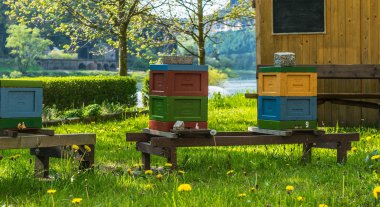 Such a rich composition allows pollen to play many different roles in our diet. It is a great product in the fight against anaemia, because it supplies a large amount of iron. It also has a high energy value, effectively supplements protein and carbohydrate deficiencies in the diet - such an inconspicuous product can therefore be very nutritious and provide us with many valuable ingredients. The properties of bee pollen should also be of interest to people on a slimming or vegetarian diet. In the first case it is worth appreciating as a low-calorie and at the same time very rich source of energy. It will be a great addition to morning tea, because it will stimulate our body to act and provide us with a feeling of satiety for a long time.
Such a rich composition allows pollen to play many different roles in our diet. It is a great product in the fight against anaemia, because it supplies a large amount of iron. It also has a high energy value, effectively supplements protein and carbohydrate deficiencies in the diet - such an inconspicuous product can therefore be very nutritious and provide us with many valuable ingredients. The properties of bee pollen should also be of interest to people on a slimming or vegetarian diet. In the first case it is worth appreciating as a low-calorie and at the same time very rich source of energy. It will be a great addition to morning tea, because it will stimulate our body to act and provide us with a feeling of satiety for a long time.
The minerals in bee pollen also improve the performance of our immune system. It can therefore be used prophylactically, significantly reducing the risk of falling ill. It is also recommended as a component of a diet for people after various treatments and illnesses that destroy the body. Effectively helps to recover and rebuild proper life functions. Its strong antibacterial effect has already been proven. Bee pollen is also very beneficial for our digestive system. Helps to treat peptic ulcer disease. It also counteracts atherosclerosis and is good for the treatment of chronic hepatitis.
Bees pollen - dosage
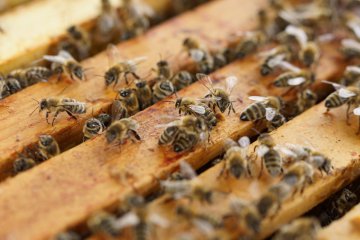 The dosage of bee pollen should depend on our individual needs and the effects we would like to achieve. The pollen should be thoroughly ground and stored in a dry place before consumption. 20 - 40 g of pollen a day is the recommended dose for general ailments such as chronic fatigue, neurosis or weakness of the body. It should be taken in divided doses - preferably shortly before a meal. It is unlikely that bee pollen can be overdosed, so it is acceptable to increase the dose in case of acute ailments.
The dosage of bee pollen should depend on our individual needs and the effects we would like to achieve. The pollen should be thoroughly ground and stored in a dry place before consumption. 20 - 40 g of pollen a day is the recommended dose for general ailments such as chronic fatigue, neurosis or weakness of the body. It should be taken in divided doses - preferably shortly before a meal. It is unlikely that bee pollen can be overdosed, so it is acceptable to increase the dose in case of acute ailments.
Bees pollen - what is its price in shops?
Bees pollen can now be found in shops under many brands, so prices may vary slightly. 200 g of pollen costs about 30 PLN, so it is never a big expense. For a maximum of several dozen zlotys you can buy a supply, which will be enough for the whole month.

